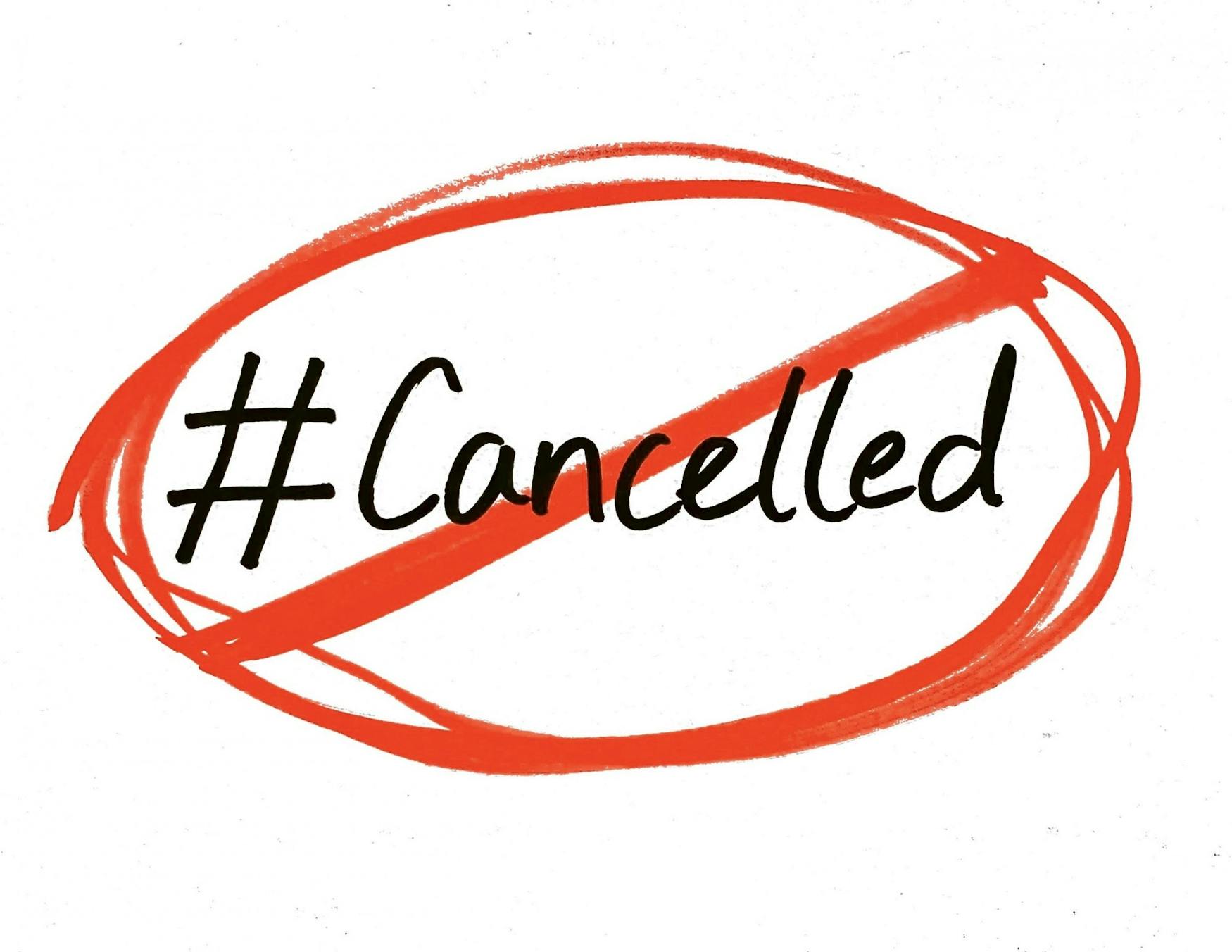It’s time to cancel cancel culture
Have you ever been “canceled?”
If not canceled, how about rejected or shunned for a particular view or belief?
People have been shunned or excluded for exhibiting misogynistic, rasist or homophobic beliefs. However, “canceling'' individuals for their beliefs, regardless whether they are problematic, bleeds into a larger phenomenon known as “cancel culture.” Cancel culture is a form of withholding and withdrawing support for an individual, as well as boycotting their work in social and professional circles. This toxic phenomenon rejects the democratic ideals of free speech and discourse, creating one-sided thought and a desire to ruin the lives of those who might disagree.
The problem with cancel culture is that it silences any and all opposing ideas. This creates an echo-chamber of one-sided opinions. People who may provide a fresh argument and encourage discourse are rejected from said echo-chamber because their opinions differ from the majority. A key aspect of healthy debate is working towards researching and understanding both sides of an issue that go beyond one’s dependence on a single source of information. This challenges individuals to fully understand an issue before taking a position on it. Unfortunately, this approach is missing in cancel culture due to the lack of opposing views. Another problem with canceling people with opposing beliefs is that it silences particular ethinic, socioeconomic, racial and gendered viewpoints.
Understanding a variety of backgrounds and perspectives fosters productive discourse. The United States was founded on democratic discussion and lively debate. Conversely, proponents of cancel culture reject ideas that are different from theirs. A person has the freedom to associate or disassociate with someone because of their beliefs. Furthermore, “canceling” an individual may result in dangerous consequences. First, cancelled individuals’ reputations are often tarnished. This can be seen in the crumbling reputation of Jimmy Fallon. His reputation was tarnished after a SNL episode from 2000 resurfaced. In this episode, Fallon impersonates Chris Rock in blackface. This offense has led to trending Twitter hashtags that aim to expose Fallon as a racist.
Another consequence of cancel culture is the targeted individual’s susceptibility to threats. For example, J.K. Rowling received death and rape threats after her anti-trans tweets. In these tweets, she takes a firm stance on the definition of sex and transphobically rejects other interpretations that differ from her own.
I find the actions of Fallon and Rowling to be deplorable. Nevertheless, problematic ideas should not be “canceled.” Doing so would only make people fall deeper into their own beliefs. How can individuals change their thoughts if they are not questioned about their thinking? Shunning the individual is not only unproductive in changing their troublesome views, but it allows them to continue to share opinions without considering the potential problems of their belief systems. Through open dialogue, a person can learn more about differing opinions and change their original stance.
Cancel culture does not solely affect celebrities. It harms average individuals to a greater degree. Most famous people who are “canceled” have stable sources of income. An average individual, however, can be threatened with unemployment, and the cost of protection and a way to leave the country would be more affordable for a celebrity. Additionally, a famous person has a larger following of people and even though they might be “canceled,” they may retain some support from their fanbase. On the other hand, an average person risks losing the only support they have if they voice their differing beliefs. This problem is especially present on college campuses. At Brandeis, I have seen friends “cancel” each other due to differing political affiliations or position on social issues. When friends are willing to ignore and shun one another without engaging in conversation, a clear danger emerges: debate begins to die. If people are not willing to address opposing beliefs, progress will be halted. Progress is developed through compromise and persuading an opposer to see another side of an argument. How can one’s thoughts change if they are never challenged to think differently? In truth, there is nothing productive or rehabilitative about isolating a person due to their differing views. If one is passionate about their beliefs, then it would be beneficial to have a well-informed discussion in an attempt to persuade a person to see another side of the argument. Shunning and ignoring a person who holds different beliefs is not only counterproductive, but also childish.
We must do better. Everyone deserves to express opinions without fear of retribution. It is time to cancel cancel culture because ignoring opposition will hamper progress. In early July 2020, 153 public figures, including Noam Chomsky and Nell Irvin Painter, signed a letter published in Harper’s Magazine, condemning “a new set of moral attitudes and political commitments that tend to weaken our norms of open debate and toleration of differences in favor of ideological conformity.” As a united front, famous writers, activists and academics emphasized the importance of open debate for fear of what life would be like without it: dystopian self-censorship and the slow death of discussion. Through open discussion and free exchange of ideas, we can better understand and refute problematic positions and beliefs.




Please note All comments are eligible for publication in The Justice.